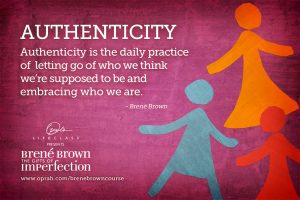 We believe in truth telling and truth living. We do. And I do, a lot. That might help explain why I just really liked reading this lesson, but there is more. President Howard W. Hunter offers some lovely emphases, namely that honesty and integrity matter because of their relationship to happiness and joy, and because of their relationship to relationships and companionship–with the Holy Ghost, God, others, and ourselves.
We believe in truth telling and truth living. We do. And I do, a lot. That might help explain why I just really liked reading this lesson, but there is more. President Howard W. Hunter offers some lovely emphases, namely that honesty and integrity matter because of their relationship to happiness and joy, and because of their relationship to relationships and companionship–with the Holy Ghost, God, others, and ourselves.
On Happiness and Relationships
Speaking to those dual emphases President Hunter once told the youth,
“A happy life will come to each of us if we will but be honest—honest with our fathers and mothers, whether it pertains to our dating, our school work, the kids we run with, or attendance at church; honest with our bishops—taking their advice, telling them the truth about ourselves, paying our honest tithing, living a clean, pure life; honest with our schools—never cheating in any part of our activities, whether in class or on the campus; honest in paying our way, whether into games or movies, or in carrying our part of the responsibilities at a party; honest with our boyfriends and girlfriends—never taking advantage of them, never deceiving them, never leading them into temptation; honest with the Lord himself.”
As we are not quite youth anymore, many of us could also add relationships with our grandparents, our sisters and brothers, our partners and spouses, our employers and employees, our children and grandchildren, our nieces and nephews, etc., as those we would like to be honest with, that would add to a happy life.
Implicit in Hunter’s statement is 1) that honesty makes relationships better, and 2) relationships themselves are tied to happiness and meaning in life. Both seem to be pretty Mormon ideas. With the second, Joseph Smith’s desire to bind the human family through sealings and (I believe sincere) teaching that friendship is among the grand principles of Mormonism comes to mind. Still, we can explore them a bit.
How does honesty make relationships better?
Honesty increases trust, openness, and vulnerability, all things which themselves increase closeness and tight ties. It is hard to feel close to someone that you can’t trust, open up to, or be vulnerable with, but pretty easy to feel close to someone that you can. It is brave. It is increased truth telling/being, rather than just not lying. It is being authentic in the way Brené Brown talks about in The Gifts of Imperfection: “Authenticity is a collection of choices that we have to make every day. It’s about the choice to show up and be real. The choice to be honest. The choice to let our true selves be seen.” Again, brave.
Exponent’s own Caroline explored what such authenticity, honesty, and vulnerability would look like in our relationship with God in a September Young Women Lesson Plan on the importance of honesty, by engaging Chieko Okazaki:
The Lord doesn’t want just pretty prayers. He wants real prayers. Sometimes we think of those eloquent, gracious prayers in sacrament meeting and General Conference as the models for our personal prayers…. Heavenly Father wants to hear the scared and mad prayers just as much as he wants to hear the grateful prayers.
Caroline added, “Prayer is the time for brutal honesty. Tell the girls to not be afraid to pray frankly about the most difficult parts of their lives.” She continued:
Okazaki points us to Jesus’ example in the garden of Gethsemane, how he was honest about how hard the Atonement was going to be for him, how sad and scared he was. He said, ‘My soul is exceeding sorrowful unto death,’ and he prayed, ‘Father all things are possible unto thee; take away this cup from me.”'(Mark 14:33-34, 36). How do you feel about Jesus acknowledging his pain and sorrow? Does it seem undignified to you, or does it make you feel closer to him?
She (and I) suspect that it’s the second.
It could be helpful, but hard, to be similarly honest with those outside of prayer as well, including those very close to us, and ourselves, who are closest of all. It would take accepting responsibility and clear seeing of both our good and bad.
On Big and Small Things
President Hunter understood that while it can be easy to be honest in very big things, it can sometimes be tricky–or feel less important–to be honest in very tiny ones. “There are some who will admit it is morally wrong to be dishonest in big things yet believe it is excusable if those things are of lesser importance.” He encouraged us to be honest in those tiny things anyway. They build our foundation.
It is pretty easy to stay away from explicit forms of dishonesty, like lying, stealing, and cheating, but there implicit forms that are harder. Some of these are things like obeying traffic rules or paying for content rather than downloading it illegally for free, but others are more complicated still. For instance, we can probably all think of real life situations when honesty has been placed against kindness, and where knowing the right thing to do or say is anything but easy. In Caroline’s YW Lesson plan mentioned above, she offers a meaningful discussion on the balance between honesty and love that is worth reading in full.
On Daily Living
President Hunter also taught that truth telling and truth living is one way we can (and should) incorporate religion into “our individual life–our family life–our business life–and everything that we do.” Otherwise, “religion means little to us and it becomes merely an idol to be set in a high place and worshipped only occasionally.” The goal is to engage openly, vulnerably, and honestly with ourselves, others, and God.
On Mattering Now
If we do, it can make a difference, not just in the eternities, but now. Indeed, President Hunter believed “if effectively used,” honesty “will solve all of our problems in government, religion, industry, and our individual lives. It would wipe out the awful scourge of crime, divorce, poverty, and misery. It would make us successful here and save our souls hereafter.” I might shy away from talking about the government part because of this especially fractious election year, but it could be useful to discuss how increased honesty could play a role in eradicating some of the real world problems mentions, like poverty, and how, as President Hunter affirms later, “integrity is that golden key which will unlock the door to almost any success.” (I.e, how does integrity lead to success in school, in work, in play, etc.?)
More on Happiness and Relationships
President Hunter returns to the themes of companionship and joy. On companionship, he said, “If we would have the companionship of the Master and the Spirit of the Holy Ghost, we must be honest with ourselves, honest with God, and with our fellowmen.”
On joy, he said, “We often speak of that scriptural reference, ‘Men [and women] are, that they might have joy (2 Nephi 2:25). There is a joy that comes to one from being honest. Let me tell you how. By this means you can have the companionship of the Master and you can have the spirit of the Holy Ghost.”
Ann M. Dibb, former member of the General Young Women Presidency, agreed,
When we are honest in all things, big and small, we experience peace of mind and a clear conscience. Our relationships are enriched because they are based on trust. And the greatest blessing that comes from being honest is that we are able to have the companionship of the Holy Ghost.


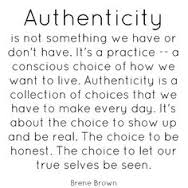
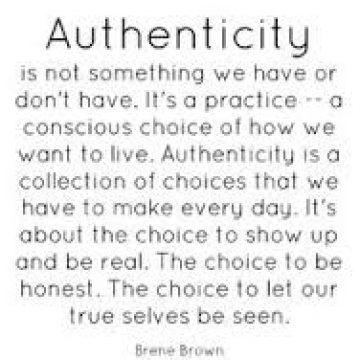
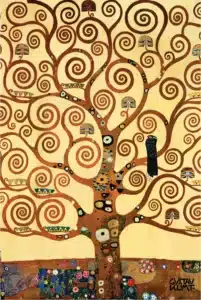
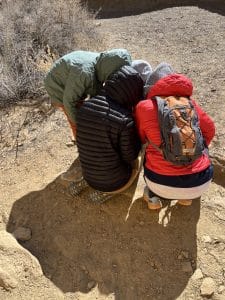
One Response
I teach Primary now, so I won’t experience this lesson in Church, which makes me grateful for your write-up. I especially appreciate the parts about friendship and prayer–both subjects that are very near my heart.